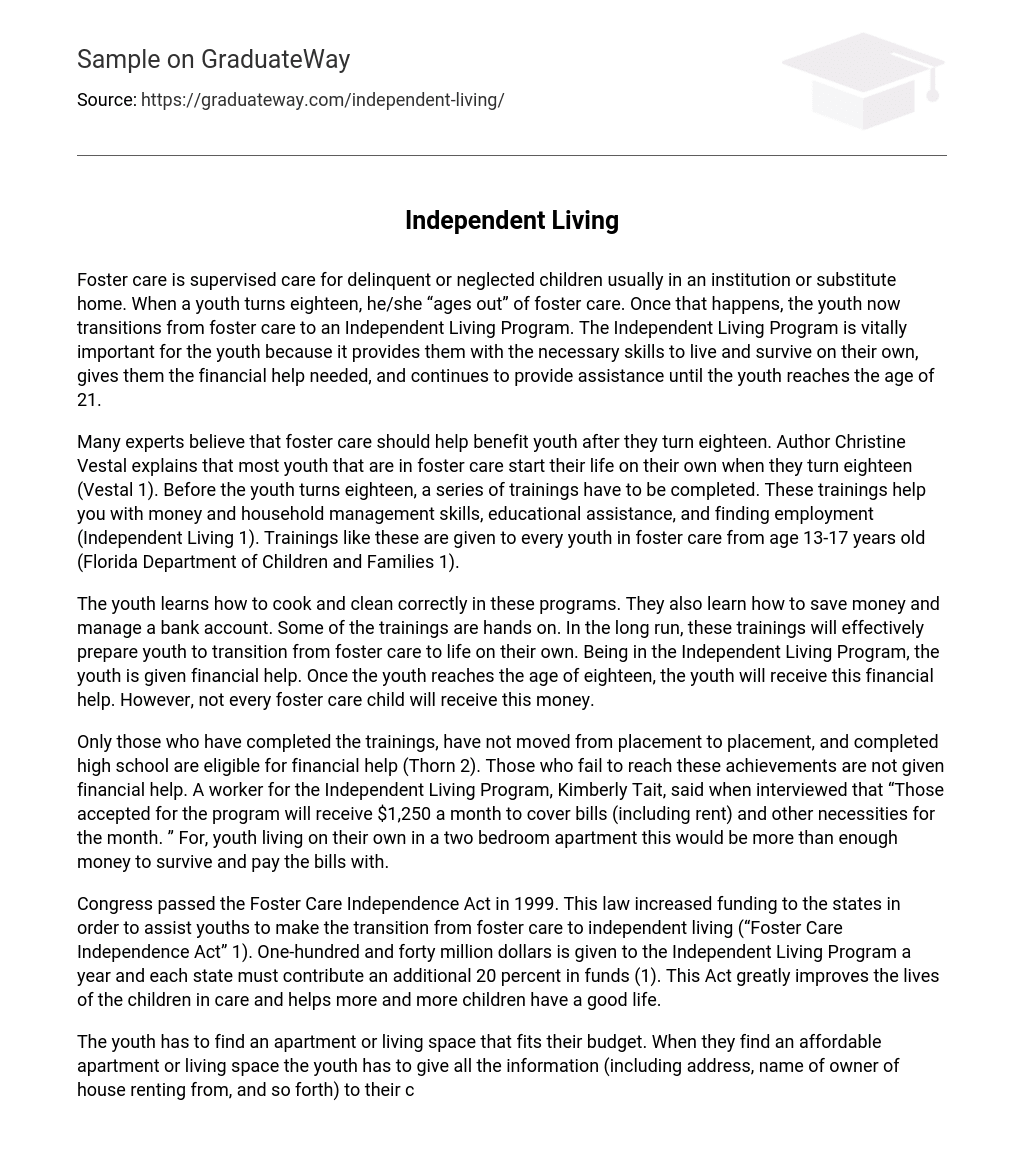Foster care is a type of supervised care given to neglected or delinquent children in either an institution or substitute home. When they turn eighteen, these children “age out” of foster care and transition into an Independent Living Program. This program is crucial as it educates them on essential skills for living independently, provides financial aid, and offers assistance until they reach the age of 21.
According to author Christine Vestal, experts agree that foster care should continue supporting young individuals even after they reach the age of eighteen (Vestal 1). Before turning eighteen, youths in foster care must participate in trainings that focus on acquiring money and household management skills, receiving educational assistance, and securing employment (Independent Living 1). These trainings are available to all foster youths aged between thirteen and seventeen (Florida Department of Children and Families 1).
The Independent Living Program provides a range of trainings aimed at equipping young individuals with essential skills for independent living. These trainings encompass various areas including cooking, cleaning, money-saving, and banking. Some of these trainings are practical and involve hands-on experience. The ultimate goal is to empower youth in foster care to successfully transition into independent living by arming them with necessary skills. Furthermore, financial assistance is extended to program participants until they reach the age of eighteen; nevertheless, not all children in foster care qualify for this funding.
Thorn (2) stated that financial assistance is only available to individuals who have completed the necessary trainings, remained in one placement, and graduated high school. Those who do not meet these criteria will not receive financial aid. In an interview, Kimberly Tait from the Independent Living Program confirmed that participants in the program will receive $1,250 per month. This amount is intended to cover their monthly expenses such as rent and essential needs. It is deemed sufficient for young individuals living independently in a two bedroom apartment to support themselves financially and pay their bills.
The Foster Care Independence Act, which was passed by Congress in 1999, seeks to improve the financial support given by states to assist young individuals as they transition from foster care to living independently (“Foster Care Independence Act” 1). The Independent Living Program receives $140 million annually and requires each state to contribute an extra 20 percent in funding (1). This legislation greatly improves the welfare of foster children, empowering them to have more fulfilling lives.
The youth must find an apartment or living space within their budget and provide necessary details, such as address and landlord’s name, to their case worker for approval. Once approved, they can move in and receive monthly financial assistance until they turn 21 years old (Ellertson 2).
According to Ellertson (3), the Independent Living Program offers health care benefits for individuals under 21 years old. These benefits include free health care and housing, significantly improving the lives of foster children. The program provides essential skills for independent living and sets a positive foundation for their future.





